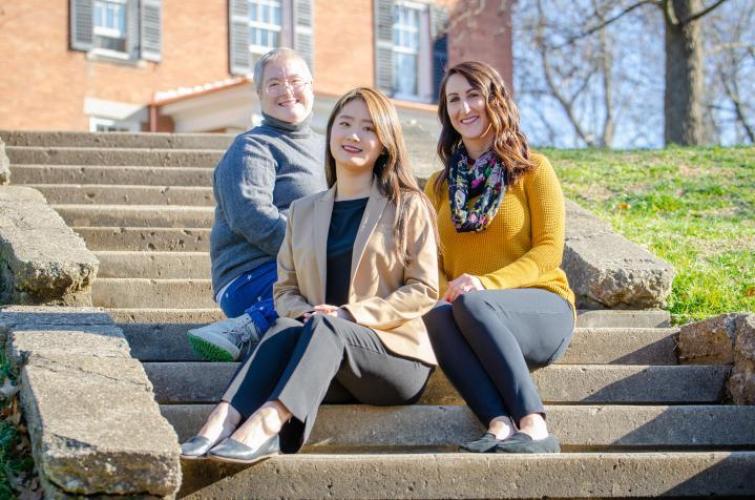
Supporting Survivors of Interpersonal Violence: A Guide for Parents and Families

April is Sexual Assault Awareness Month, a time to raise public awareness about sexual violence and educate communities on how to prevent it. The Survivor Advocacy Program (SAP) at Ohio University provides support and advocacy services to student survivors of sexual assault and/or harassment, dating violence and stalking and their friends and family. We support survivors regardless of when the assault occurred (i.e., childhood, before college, during college, etc.) Our hope is that none of our students are impacted by sexual violence, however, we know from national statistics that traditional college-aged students are at heightened risk for this type of violence. We want to make sure that parents and families are equipped with the skills and resources to support their student if they experience sexual violence.
Learning that your loved one has experienced interpersonal violence is likely one of the most painful things a person will endure. For a lot of parents and families, the idea of supporting a loved one who has endured sexual assault may be scary. It isn’t that people don’t want to support their loved ones, rather they simply are not sure what to say or how to respond. It is important to know that supporting someone who has experienced sexual assault does not have to be complex and it is okay to not have all the answers.
Studies have shown that survivors who received positive responses and reactions from friends and family when they disclosed an assault exhibited better psychological adjustment than those who did not. If your student comes to you and discloses that they have experienced interpersonal violence, know that they have chosen to trust you with a vulnerable part of themselves and that this process can be extremely difficult.
Something we hear from our clients at SAP is that they either do not know how to talk to their families about what happened to them or that they have told their families what happened and their responses were not helpful or supportive. Two simple behaviors that have shown to have a positive impact on a survivor’s well-being after a sexual assault are having someone to talk to and being believed. In addition to simply providing a listening ear and believing the survivor, here are some other simple ways that parents and families can support survivors in their life:
- Do not blame them for what happened. Do not tie the violence to past consensual sexual activity, clothing, drinking choices, etc. Sexual assault is never the survivor’s fault. It is the perpetrators of these crimes who are responsible for their actions.
- Validate their feelings about the experience.
- Express admiration for their courage.
- Be patient and remember that there is no timetable for recovering from trauma.
- Give them the power back and help them regain control.
- For example, if the assault has not already been reported, empower your student to make the decision of how they wish to proceed in this manner rather than making the decision for them.
- Do not try to force them to do one thing or another. Encourage and empower them to pursue healthy options for their recovery, but do not require them to pursue an option they aren’t yet ready for.
- Share resources that may be helpful. The Survivor Advocacy Program (24-hour hotline 740-597-7233, email: survivor.advocacy@ohio.edu) can provide confidential support and can inform students of their options, accompany them to appointments with investigators, detectives, the emergency department, court, etc. Advocates remain available via telephone or virtual face-to-face meetings during the COVID-19 pandemic.
We know that most student survivors first disclose assaults to a close friend and then later may tell a parent or family member. Don’t be surprised if you aren’t the first person they have confided in. In many instances, it takes a person a while to share this type of information so remember not to be critical of them for making this choice.
It is important to remember secondary survivors (parents, friends and family members of survivors) may also experience a range of emotions after learning that a loved one has been hurt. These feelings frequently include anger, pain, sadness, disbelief, and helplessness. It is okay, and encouraged, that secondary survivors also seek help and support for themselves as they provide support to their loved one.
As parents and families, you have the power to provide support that promotes positive healing for survivors. If someone shares with you that they have experienced interpersonal violence remember: believe them, listen to them and do not blame them for what happened. You can learn more about the impact of these approaches by watching our 30-minute Start by Believing documentary that outlines one student survivors' journey at Ohio University.
The Survivor Advocacy Program remains a resource for you and your student(s) during the COVID-19 pandemic and beyond. We can be reached on our 24-hour hotline at 740-597-7233 or by email at survivor.advocacy@ohio.edu. For more information, visit our website: www.ohio.edu/survivor and follow us on Twitter at @ousap.
